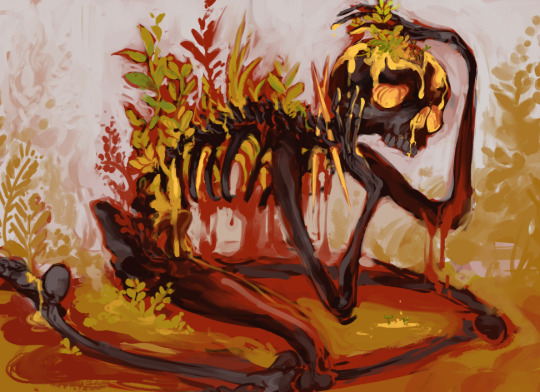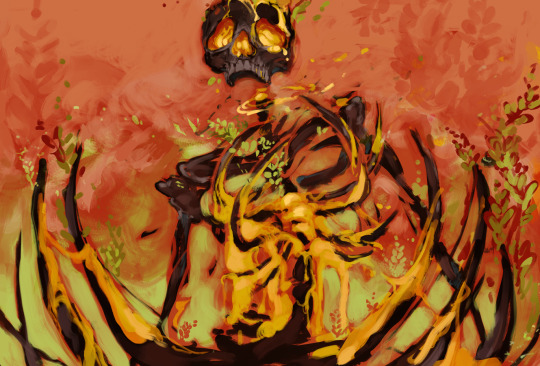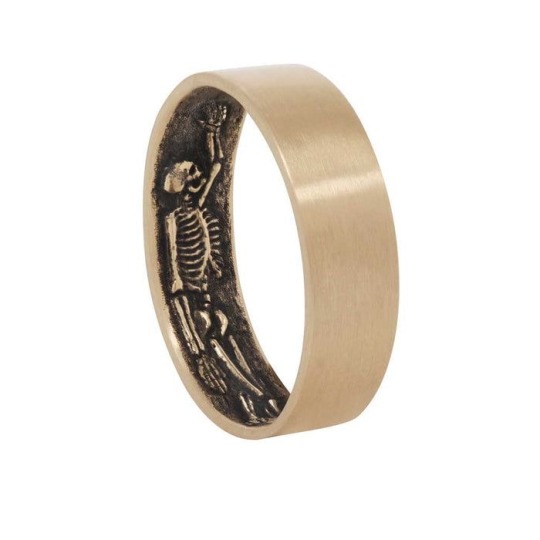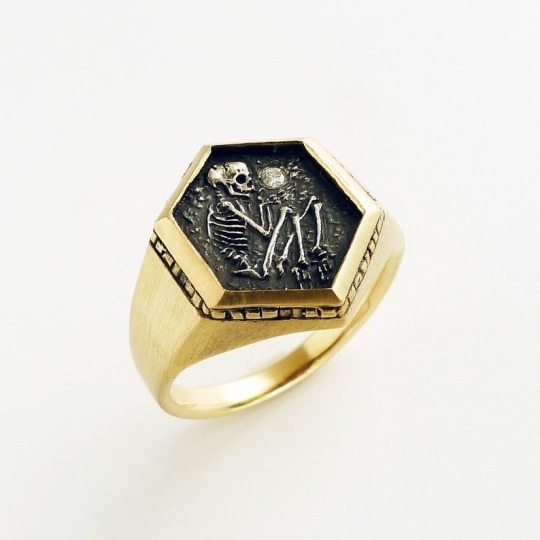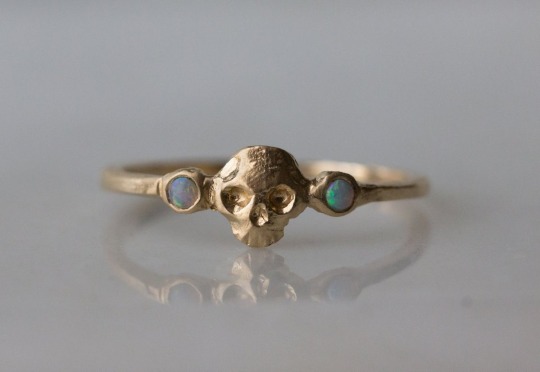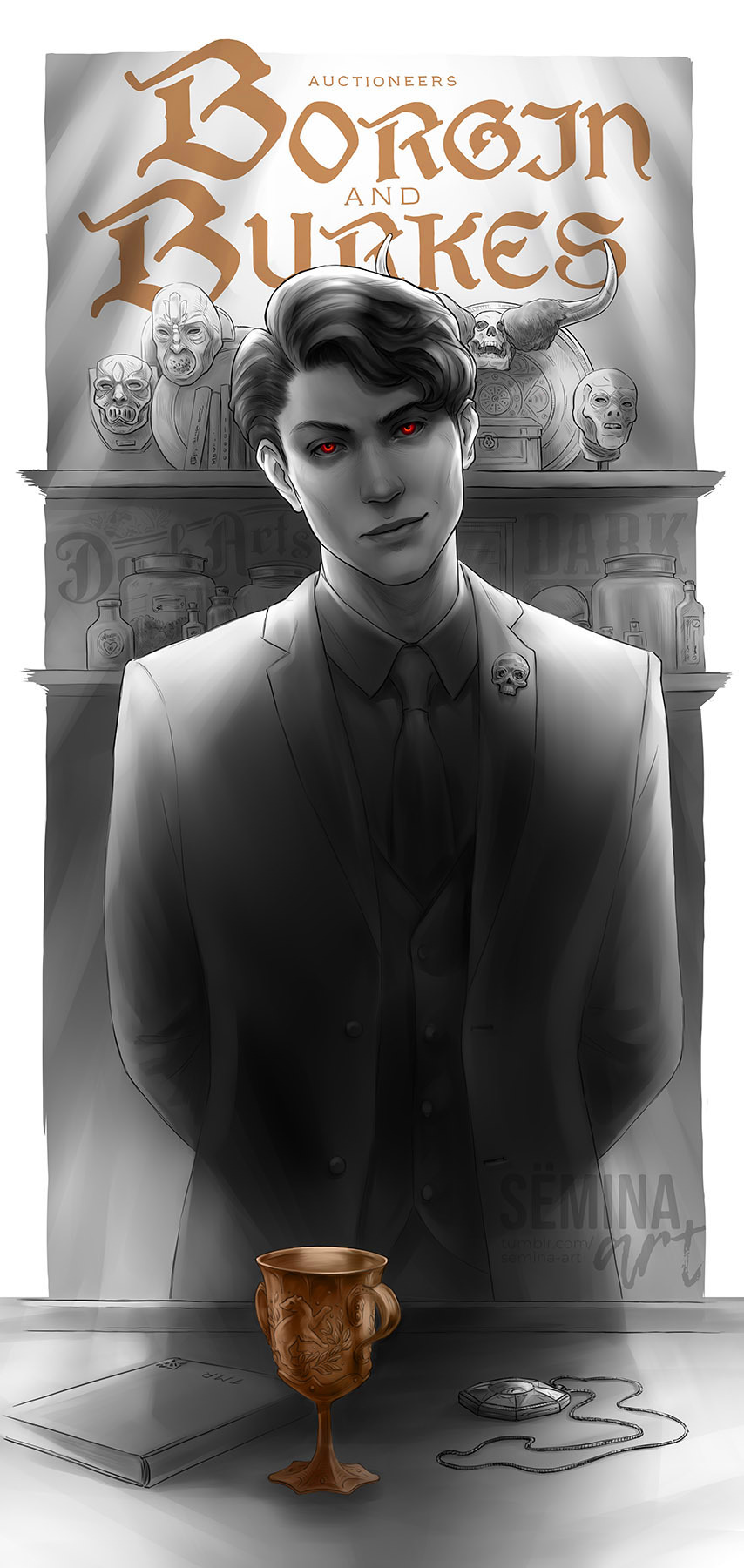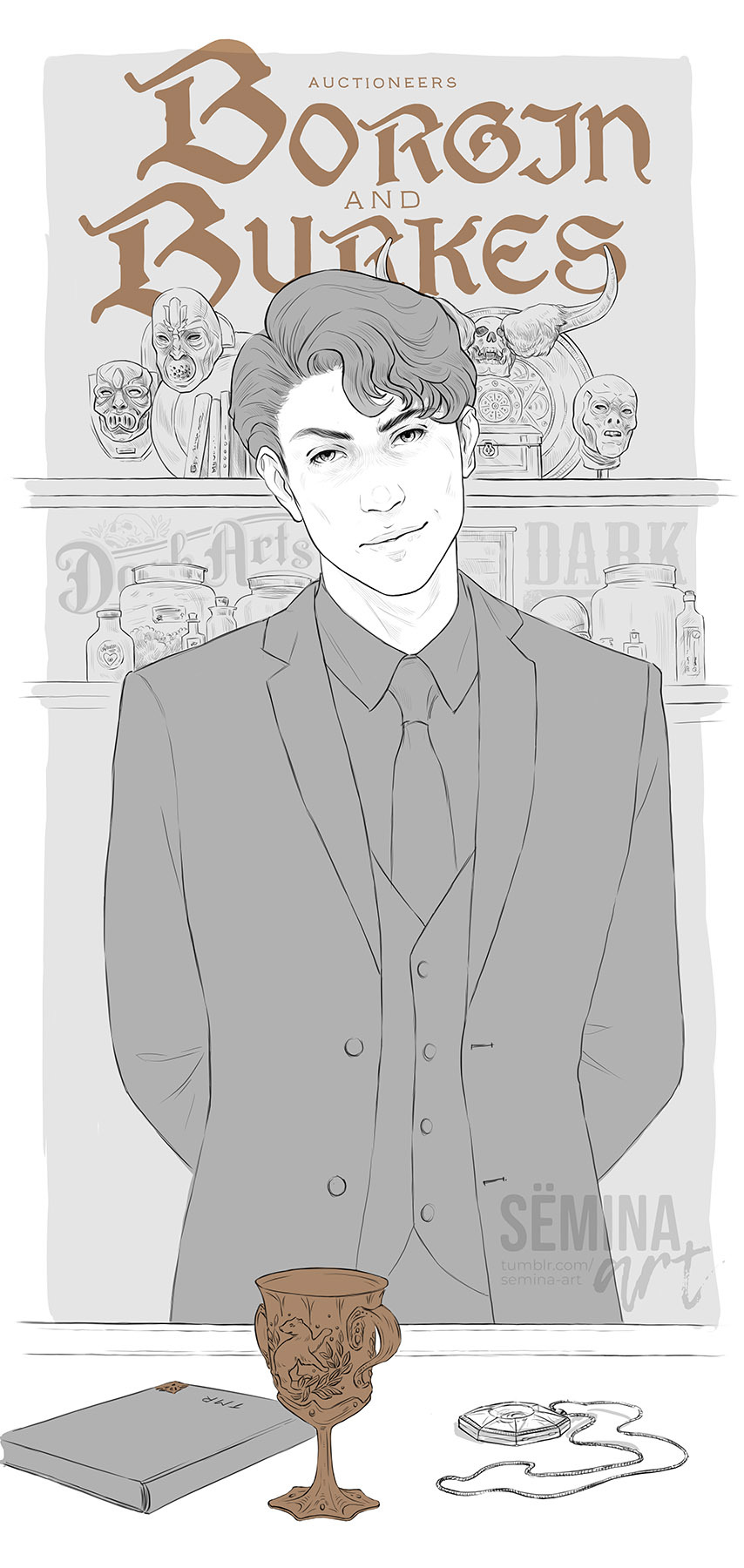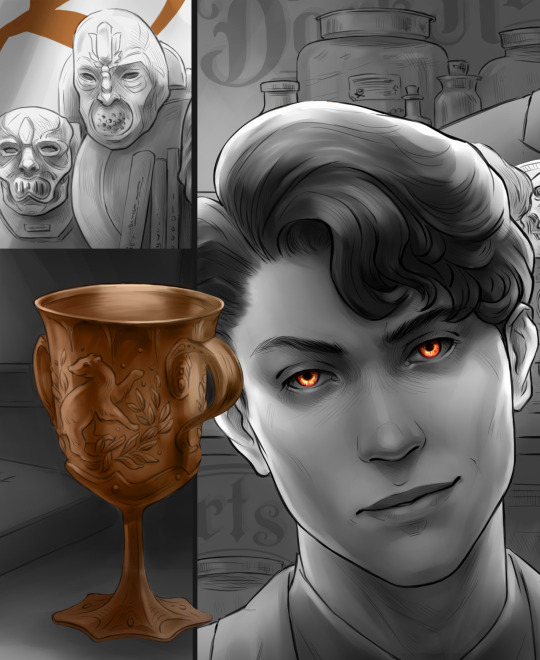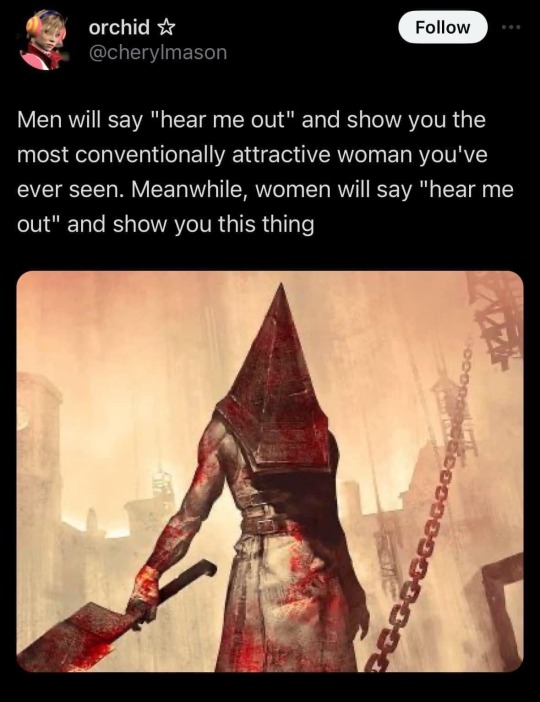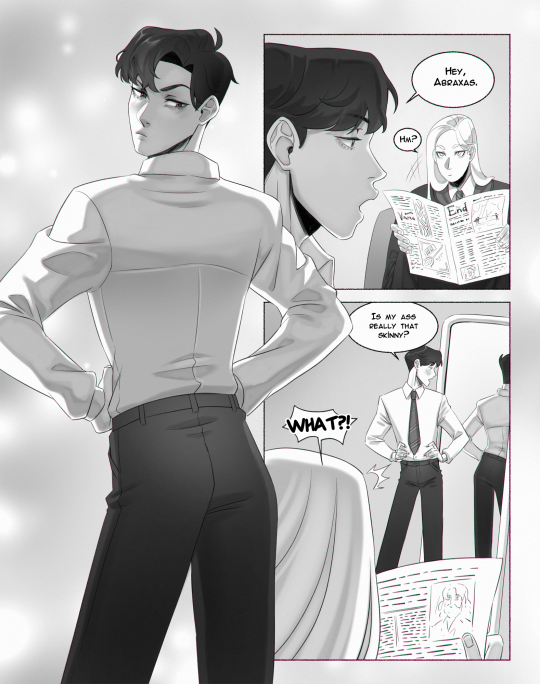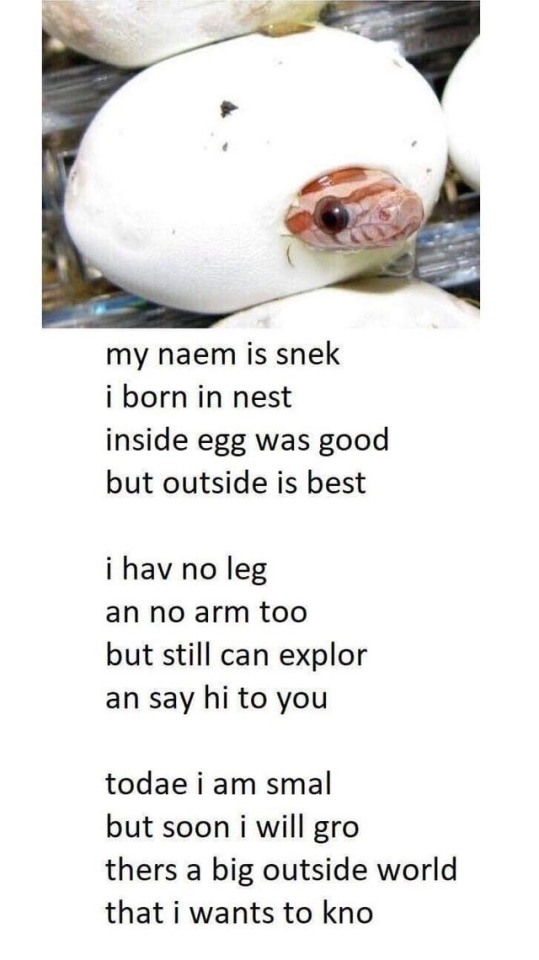Text
Even if I didn’t have a solid plan, in the back of my head, I always assumed I’d kill myself.
Now I’m an adult and people my age have their lives in order and I’m stuck here, confused, because I never planned to be alive and I’m so far behind.
I feel like I’ll never catch up.
41K notes
·
View notes
Note
Riddle’s extremely fearful and aggressive reaction to Dumbledore when he thinks he’s a doctor (and the fact that he assumes this at all and believes he is being lied to) has some pretty dark implications (which of course no one follows up on). Do you have thoughts?
thank you very much for the ask, anon!
and yes - this has occurred to me too... which means that my thoughts come with a trigger warning for the sexual abuse of a child, and are under the cut.
the relevant scene in canon is, of course, this:
“I am Professor Dumbledore.”
“Professor?” repeated Riddle. He looked wary. “Is that like doctor? What are you here for? Did she get you in to have a look at me?”
He was pointing at the door through which Mrs. Cole had just left.
“No, no,” said Dumbledore, smiling.
“I don’t believe you,” said Riddle. “She wants me looked at, doesn’t she? Tell the truth!”
He spoke the last three words with a ringing force that was almost shocking. It was a command, and it sounded as though he had given it many times before. His eyes had widened and he was glaring at Dumbledore, who made no response except to continue smiling pleasantly. After a few seconds Riddle stopped glaring, though he looked, if anything, warier still.
“Who are you?”
“I have told you. My name is Professor Dumbledore and I work at a school called Hogwarts. I have come to offer you a place at my school - your new school, if you would like to come.”
Riddle’s reaction to this was most surprising. He leapt from the bed and backed away from Dumbledore, looking furious.
“You can’t kid me! The asylum, that’s where you’re from, isn’t it? ‘Professor,’ yes, of course - well, I’m not going, see? That old cat’s the one who should be in the asylum. I never did anything to little Amy Benson or Dennis Bishop, and you can ask them, they’ll tell you!”
the surface-level reading of this scene - which is clearly what the text wants us to go for - is that riddle thinks he's about to be institutionalised for being "mad" - and, specifically, that he thinks that what dumbledore has been told is his "madness" is actually his magic.
[he is also clearly meant to be read as panicking a little bit that he's fucked around torturing his fellow children and is now about to find out...]
that riddle accepts he's a wizard so easily - and that he is so reassured by dumbledore agreeing that he's not mad - is something the text wants us to read as sinister. him immediately describing himself as "special" is set up as a precursor to the adult voldemort's delusions of grandeur - which the entire arc of the series, ending in his death as an ordinary man, is designed to undermine.
but i've always disliked this reading. the eleven-year-old riddle - a magical child raised around non-magical people - is objectively correct to describe his powers as "special" [in that they make him identifiably different from the crowd] within the context in which he lives. the word choice is nowhere near as deep as dumbledore decides - he's clearly known since he was very young that he's a wizard, but he didn't have the precise language to describe this fundamental part of himself until dumbledore offered it; prior to that, "special" is a perfectly reasonable alternative term.
and, in always knowing that he's a wizard, he also knows that he doesn't have a mental illness - but he must also know that this is something it's near impossible for him to prove.
in the real world, if i spoke to a patient who told me:
“I can make things move without touching them. I can make animals do what I want them to do, without training them. I can make bad things happen to people who annoy me. I can make them hurt if I want to.”
then i would be correct to describe them as experiencing psychosis. and i might - depending on their other symptoms - have reasonable cause to admit them [voluntarily or not] for psychiatric treatment.
riddle is - of course - demonstrably not psychotic. but it's not unreasonable that mrs cole would assume he is - the world she lives in, as a muggle [even if she's a religious one], is one in which people do not possess the ability to move objects or control animals with their minds, and if one of her charges is convinced that he can, then she's justified in seeking medical intervention.
[that psychiatric treatment in the 1930s can be described without exaggeration as inhumane is another matter...]
which is to say, i think we can easily suppose that mrs cole has - prior to dumbledore's arrival - succeeded in having riddle "looked at", and that the idea that he's mentally ill and should be committed to an asylum has been mentioned before. i think most of us would be instinctively [and angrily] wary of doctors if this happened to us, regardless of how nice the doctors in question were.
and maybe that's all there is to it.
and maybe it isn't...
in the doylist text, the eleven-year-old riddle's personality is the way it is because he's the villain of the series. where harry is preternaturally capable, even as a child, of all the things the series defines as admirable - above all, enduring difficulty without complaint - riddle is preternaturally incapable of them. he's meant to come across as unambiguously sinister - and the fact that the text repeatedly emphasises that he has control over his unpleasant traits invites us to view him as someone who is acting with full agency. that he lives in an orphanage is a trope which the text uses, like a campy horror film might, predominately to underscore how creepy he is - and the text, in keeping with its general lack of interest in states and their institutions, never really prompts us to interrogate the impact of his childhood upon the course his life takes.
[this is despite the fact that voldemort's reliving of the night he killed the potters in deathly hallows is an incredibly accurate depiction of ptsd...]
but it's also the case that the eleven-year-old riddle's behaviour and personality fits a pattern we might expect to see in a child who is being abused, sexually or otherwise:
he's aggressive, he has a hair-trigger temper, and he becomes distressed even by behaviour - such as dumbledore speaking mildly and calmly - which would not ordinarily be expected to provoke such a reaction.
his broader emotional state is fractious. his mood changes sharply, he seems to feel emotions very profoundly, he struggles to control his emotional response to things, he's extremely easily irritated, he's attention-seeking - and he particularly seeks negative attention, and he's very highly-strung.
his admission in deathly hallows that he feels calm before he kills - or before he otherwise eradicates a threat or a problem - comes with the flip-side that he's someone who appears, when things aren't going well or he finds himself in a situation which he can't control, to become quite anxious. which is a trauma response.
he's extremely isolated. the text presents the fact that he has no friends as a deliberate choice - "lord voldemort has never had a friend, nor do i believe that he has ever wanted one" - and his relationship with everyone else he ever meets, including his fellow orphans, as defined by the text as exclusively involving him controlling, manipulating, and punishing them. or: he is always the more powerful person in the pairing.
but this need for control can be read as self-protective just as easily as it can be read as sinister. there are hints in canon that riddle is not just some malevolent force in the orphanage preying on mild-mannered innocents. for example, billy stubbs, the owner of the rabbit he kills, is targeted by riddle as revenge:
“Billy Stubbs’s rabbit... well, Tom said he didn’t do it and I don’t see how he could have done, but even so, it didn’t hang itself from the rafters, did it? [...] But I’m jiggered if I know how he got up there to do it. All I know is he and Billy had argued the day before."
on the rare occasions billy turns up in fics, he's usually - i find - written very like neville - sweet and guileless and a bit pathetic. but the alternative reading - especially when we take into account that riddle attacks the rabbit rather than billy himself - is that billy is someone he would be afraid to physically confront.
indeed, it's striking that voldemort - at all stages of his life - is described as being quite physically fragile. not only is he very thin, but he's always cold and his heartbeat is described several times in canon as irregular. i think this is supposed to be a comment on the physical changes he undergoes the more horcruxes he makes - although the idea that the soul would affect the heart doesn't actually align with how the series understands the soul to relate to the body - but it can also be interpreted perfectly legitimately as something he was experiencing prior to splitting his soul.
i am committed to the headcanon that riddle was quite a sickly child - and that this is one of the things which drives his fear of death - and i'm also committed to the idea that his obsession with magic is because the enormity of his magical power makes up for his physical lack. he can defeat - and humiliate and frighten and remove the threat of - billy or dennis [or even an adult man?] with magic. without it, if they were to physically overpower him, then he wouldn't be able to throw them off.
he is extremely nervous about being alone in a room with dumbledore - someone he doesn't know, and who he assumes is connected to a profession [and, maybe, who knows any other doctors he's been previously made to see...] of which he is frightened.
he doesn't trust or confide in anyone - which, as a child, means particularly that he doesn't trust or confide in adults in positions of responsibility. he's clearly uneasy with the idea of finding himself in the subordinate position in an adult-child relationship when dumbledore offers to take him shopping for school supplies - potentially because he's worried that dumbledore will try and dictate or restrict what he's allowed to buy unless he behaves in a certain way...
and i am always very struck that dumbledore says in half-blood prince:
"He was very guarded with me; he felt, I am sure, that in the thrill of discovering his true identity he had told me a little too much. He was careful never to reveal as much again."
this is presented in the text as evidence that dumbledore is the only person of whom voldemort is afraid - by which the text means that voldemort acknowledges that dumbledore knows that an ordinary man, mortal and unimpressive, lurks behind the mask of unassailable power he has created for himself; and which the text thinks is a good thing.
but we can also read it as a self-protective act on riddle's part. in his excitement, he offers dumbledore information [that he is known to be a liar, that he is in trouble a lot, that mrs cole dislikes him and is disinclined to believe anything he says] which would give dumbledore - or anyone in a similar position of power and presumed respectability - cover to abuse him, safe in the knowledge that he would be unlikely to be believed if he reported it.
he doesn't appear to feel safe in the orphanage and he's frequently absent from it - by his own admission, he spends a huge amount of time wandering around london on his own, which may even involve him staying away for several days at a time. nobody appears to notice or care about this.
he's very independent - which the text again presents as evidence of his deliberate self-isolation and rejection of the bonds of love and friendship - and his independence is unusual for a child his age [i.e. that he is capable of doing all his own shopping for school].
his knowledge of violence - i.e. how he designs the trip to the cave to be maximally psychologically devastating for dennis and amy and devoid of repercussions for himself - is also more advanced and methodical than would be expected in a child of his age. again, the text uses this to emphasise how inextricable the child-voldemort is from his adult self - and also, to some extent, to underscore the intellectual brilliance [his magic is also more advanced than is normal for a child] which his narrative archetype [the exceptional villain who is defeated by the everyman hero] requires.
but we can also read it as evidence of his own victimisation.
a common sign that a child is being sexually abused is that they display a knowledge of sexual behaviour which is more advanced than is reasonable for a child of their age - for example, knowing in detail how a sex act is performed, or fluently using sexual slang which they have no chance of knowing either from age-appropriate settings like school-based sex education or conversations with a parent or trusted adult, or from the sort of enthusiastic hoarding of rude words and phrases all children enjoy as they grow up.
riddle's precise, clinical knowledge of how to manipulate, frighten, torture, and control can be seen as something similar. if he can - at eleven or younger - methodically break down another child until they're "never quite right" again, then this is because he's learned how to from someone.
he keeps secrets.
and he also goes out of his way to extract them. his grooming of ginny in chamber of secrets - he manipulates her into confiding things she wants to keep to herself, promises he won't tell anyone, and then uses the threat that he will to get her to do his bidding - is an absolutely textbook example of how abusers use the idea of secrecy to control their victims. it doesn't make his abuse of ginny any less inexcusable if we assume he learns this from being on the other side of things.
dumbledore understands his little cache of objects as trophies he's taken from victims - and the text takes the view that dumbledore is correct in this assessment. that hoarding trophies is something widely associated with serial killers means that this is yet another thing which underlines how creepy - and how like his adult self - the child-voldemort is.
but it's also the case that the adult - and teenage - voldemort places a lot of emphasis on gift-giving as part of his control over other people. the two most obvious examples in canon are wormtail being given his shiny hand as a reward for helping voldemort get his body back, and slughorn being buttered up with crystallised pineapple before voldemort asks him about horcruxes.
the text thinks this is sinister - and one of the reasons it does this is because gift-giving is a grooming tactic.
the text also clearly thinks this isn't behaviour voldemort has learned from the other side.
and yet a common sign that a child is being abused is if they have possessions it doesn't make sense for them to own [i.e. a child from a low-income background who is suddenly decked in designer clothes] and which they can't or won't explain how they came by. riddle's cache isn't luxurious - although he's so poor that a yoyo or a mouth organ probably is a luxury to him - but there's also nothing in canon which precludes the objects being presents, rather than stolen goods.
if the spell dumbledore uses to make the box rattle is caused by a statement which is both relatively ambiguous and dependent on dumbledore's subjective personal morality - is there anything in this room he's acquired through nefarious means? - then the spell would still work as it does in canon if riddle was an abuse victim given the objects as "rewards". dumbledore's tendency to locate right and wrong in the individual and dumbledore's belief that good people should steadfastly endure misery means he can be written entirely canon-coherently as someone who would think a victim who appeared to collude in their own abuse - such as a victim who "offered" a sexual act because their abuser promised them something if they did - was behaving consensually, manipulatively, and nefariously.
and it's worth noting that when riddle doesn't know what dumbledore has done to make the box rattle, he is "unnerved". when he realises dumbledore thinks he's stolen the objects - and that he has no interest in forcing him to admit this aloud - he is "unabashed". perhaps because he's just received proof that an experience he doesn't want to talk about is still secret...
on the other hand, the objects could indeed be stolen - because petty criminality and anti-social behaviour, especially in pre-teen children, is also a sign of abuse.
he can be extremely obsequious - when dumbledore tells him to watch how he speaks he becomes "unrecognisably polite", he ruthlessly flatters slughorn, and he is cringingly deferential to hepzibah smith.
the text understands this as evidence that his apparent charm is only superficial - another trait associated in the popular imagination with serial killers [and it's striking that so much about the young voldemort - handsome, charming, seemingly quiet and polite, true evil lurking underneath the mask - is exactly like the pop-culture persona which has been created for ted bundy...].
voldemort himself agrees that his charm is performative in chamber of secrets:
“If I say it myself, Harry, I’ve always been able to charm the people I needed. So Ginny poured out her soul to me, and her soul happened to be exactly what I wanted."
but his obsequiousness is also a fawn response - a way of minimising a threat by attempting to please the person issuing it. he becomes "unrecognisably polite" - after all - in response to this:
Dumbledore raised his eyebrows. “If, as I take it, you are accepting your place at Hogwarts - ”
“Of course I am!”
“Then you will address me as ‘Professor’ or ‘sir.’ ”
Riddle’s expression hardened for the most fleeting moment before he said, in an unrecognisably polite voice, “I’m sorry, sir. I meant - please, Professor, could you show me - ?”
riddle could reasonably interpret what dumbledore says here as a threat to prevent him attending hogwarts - even though dumbledore evidently doesn't mean it in this way - and he switches to being fawning because this is something he really doesn't want to happen...
do i think that any of this is what the text was actually going for? no. and nor do i think that reading riddle as a victim of abuse excuses the violence which the adult voldemort goes on to perpetuate.
but i think it is a reading of his characterisation which is both canon-plausible and interesting - a strange, sickly child with a reputation for cruelty and dishonesty being abused by the respectable doctor who is constantly called in to treat his coughs and wheezes, who buys him little presents and charms him into telling him secrets, who then [to paraphrase the teenage voldemort] feeds him a few secrets of his own, safe in the knowledge that nobody will ever believe him if he tries to get help.
and i also think this a reading which is sincerely important.
a significant contributor to the prevalence of child abuse - no matter what exact form this abuse takes - is that we are culturally conditioned to imagine that both the abuser and the victim will look and behave in a certain way if the abuse is "real".
and this means, all too often, that we take child abuse more seriously when the victim is "sympathetic" - when they're from a stable home, and their family are respectable, and they do well in school, and they're polite and sweet, and they look innocent, and they behave perfectly appropriately for their age, and nobody would ever dare to say that they come across as older than they are, and they're white, and they don't have a history of lying, and they don't have a history of attention-seeking, and they don't have a criminal record, and they're not abusive themselves, and there's absolutely no way of suggesting that they colluded in their abuse, and the perpetrator was someone who looks like a child abuser.
someone who is creepy, low-status, ugly, unpopular. someone who everyone can tell is socially abnormal, someone who nobody would ever intentionally permit to be around their children. not someone who is charming, well-respected, attractive, rich, popular, trustworthy. not someone who has a loving family and a happy home. not someone we might be friends with.
but many perpetrators of child abuse are these second group of people. and many victims of child abuse are "unsympathetic", when their social positions and reputations are compared to their abusers' own.
they lie. they steal. they're attention-seeking. they're vindictive. they have trouble distinguishing between imagination and reality. they're violent. they're bullies. they hurt animals. they abuse other children. they take drugs. they're mentally-ill. they come from broken homes. they're in the care of the state. they're dirty. they're poor. they're odd. they're behind at school and badly-behaved in the classroom. they do things which allow their abuse to be dismissed as something they brought upon themselves - they speak or dress in certain ways, they pose provocatively in pictures and post them on the internet, they are known to be sexually active outside of the context of their abuse, they lie about being over the age of consent, they engage in sexual behaviour with an adult abuser in a way which appears [even though it isn't, and there's never a circumstance in which it will be] to be consensual or for their own personal gain, they are flattered by the attention they receive from someone who is important or attractive grooming them, they have complicated - and not always wholly negative - feelings towards their abusers.
and they are still - unequivocally - victims, and what happens to them is still - unequivocally - abuse.
tom riddle is an unsympathetic victim - not only of any potential abuse, but also of the horrors of his life which are explicit on the canon page: that he is raised in an orphanage; that he is grieving; that he knows nothing about his family; that he is thought to be mad.
the absence of any institutional response to his childhood experiences - dumbledore, by his own admission, discloses nothing about riddle to his fellow teachers - is a flaw repeated again and again in the worldbuilding of the harry potter series.
hogwarts - and the wizarding [and muggle] state more broadly - doesn't intervene in any case of neglect or abuse, from harry to snape to voldemort's own parents. the series' individualistic morality means that we aren't supposed to interrogate these collective failings. and the series' black-and-white view of good and evil - and its general belief that violence is fine if the person it happens to "deserves" it - means that it has no interest in examining the ways that poverty, isolation, and neglect are risk factors; that straightforwardly unpleasant people can still be victims; that victims can go on to become perpetrators without their victimhood ceasing to matter; and that the abuse of children usually takes place not in silence and secrecy, concealed in ways which make it fine for adults not to notice it and not to intervene, but in plain sight.
this is knowledge it never hurts to refresh. thinking about lord voldemort's childhood might be an usual way of doing so... but it is an effective one nonetheless...
279 notes
·
View notes
Photo

If you ever need a laugh, just remember that in the Art of Cars book, the Sherif has the aerodynamics of a doughnut
829 notes
·
View notes
Text
ATTENTION
If you see this you are OBLIGATED to reblog w/ the song currently stuck in your head :)
436K notes
·
View notes
Text

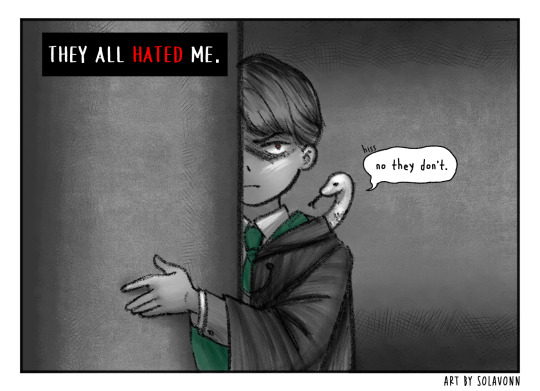
Tom's first year in Slytherin.
1K notes
·
View notes
Text
Tomarry AU where Harry knows everything but it's not because he is a time traveller, neither because he is a seer —
Pages and words have always been Harry's best friend. Living inside a cupboard did not help with his obsession. Rather, it was due to those pages that he survived. (He was 14 when he got his room instead of a bloody cupboard to sleep in.). The library was the only place Harry was able to hide from Dudley before they were sent to different schools.
When he was fourteen, and hiding from Dudley in the public library (he was mad that his gaming room was given to him.) he ends up reading a book he came to like very much.
It was a book about an orphan boy (like him.) who ends up going to this magic world (oh, how Harry wished) but sadly Tom ended up being hated there as well. Harry was awed by Tom's strength, but also angry (at the world how they let Tom down.) and angry at Tom for destroying himself to destroy what hurt him (or maybe he was angry at himself for not being able to do the same, maybe he was angry that he couldn't save Tom —) Harry was fourteen and it would seem he was angry at a lot of things.
(—that day Harry punched Dudley back after Dudley hit him. He didn't get to eat for a week straight.)
Jealousy is something he never let himself feel, because it wasn't a privilege he was given — not really. But one thing he was jealous of was the fact that Tom got to fly. (Harry wondered some nights — hungry and unable to sleep — what would he do if he got a magic letter? Would he have friends? How nice it would be to get to eat 3 times a day — how nice it would be to just fly away.).
Harry Potter loved Tom Riddle. Harry Potter also loved Lord Voldemort. The boy who died to be born as a monster. The boy who swallowed all the hatred so that he could hate the world in return (oh, how Harry wish he could burn down the world too sometimes — how he wish he could just hate hate hate and not care care care; maybe then he would finally stop trying look for approval in his aunt's eyes). Harry knew when started reading the book Tom was as cruel as he was strong. And he knew as he read the text, there would come a day Tom would burn the world like he was also burned. Even though he didn't agree with Tom's decisions most of the time he knew Tom. So yes, Harry Potter might not agree with Voldemort but he still loved him. And he wished that he could tell him that. Wished he could tell the man who was still a boy that wanted a family so bad that he stayed up for hours at night searching, hungry to find any living family there was, hungry for a belonging that he wasn't even deigned in the magic world. He wished he could tell Voldemort that no matter what he became, Harry would love him.
So imagine his surprise when he wakes up in a moving train — right after going to bed (instead of a cake he got a can of soup) the night he turned sixteen. Imagine how surprised as he sat there, in robes that he doesn't remember he ever owned. Imagine him freaking out that he got kidnapped as the door of his train compartment opened, and in came Tom Riddle.
169 notes
·
View notes
Note
One day tom riddle just says fuck it and approaches harry with the magnificent opening question of "do you like snakes?" while staring creepingnly intently to his eyes. Harry, bc he's a sweetheart (impulsive), just says "...sure?" and starts a No Blinking Challenge while Riddle starts info-dumping abt snakes to him witb a few hints abt snakely courtship behavior (do they actually have that??? Idk)
Hi btw jJDBSJDB i love your writing and your aus and your characterizations and aAAAAA a 💖
Tom sweats bullets and becomes a moron when confronted with his crush. Harry wonders why everything Tom says to him sounds vaguely like a threat.
Also, hello darling 😘 thank you!!
177 notes
·
View notes
Text
Little tom thinking he’s manipulating fatherfigure!harry into loving him but harry loves him unconditionally anyway
116 notes
·
View notes
Text
Why I don't think Harry actually likes Ginny
So, I don't like Hinny. I don't buy the relationship between them for multiple reasons. The first of which is that I believe Harry Potter is gay (or at least, not attracted to women).
The rest, I'm going to cover here. Some of the opinions I have are probably not very popular, but I'm saying what I see evidence for.
Disclaimer: No hate to anyone who does ship Hinny, or likes Ginny, I just don't see it.
He doesn't actually think about her until book 6... like, at all
The most important part of this section is actually what Hary doesn't say about Ginny and not what he does, so I don't have quotes. But I literally scoured the books to find scenes Harry described Ginny's appearance. I looked for words like: "pretty", "beautiful", "attractive", or anything else, really any detailed description that would show he is physically attracted to her. I came out with nothing.
He never calls her pretty or attractive in all seven books. And I mentioned in my post here, how Harry can and does describe attractiveness in people (men) he finds attractive.
The other thing he never mentions is what he likes about Ginny. Like, her personality.
He says he likes her, and he's jealous when she's with Dean in HBP (only halfway through the book, but that's for later in this post), but he never mentions what he likes about her. Ginny talks about why she likes Harry plenty, but Harry seems to have no clue why he's dating Ginny. He supposedly likes her, but doesn't name in his head a single thing he likes about her as a person. The things he does think he likes about her are:
She is comfortable to be around, the same way Ron and Hermoine are.
She doesn't weep like Cho.
She's good at Quidditch.
So that's a brilliant basis for a relationship right there. (sarcasm)
“Harry, I’m talking to you, can you hear me?”
“Huh?”
He looked around. Ginny Weasley, looking very windswept, had joined him at the library table where he had been sitting alone. It was late on Sunday evening; Hermione had gone back to Gryffindor Tower to review Ancient Runes; Ron had Quidditch practice.
(Order of the Pheonix, page 655)
Ginny approaches him, but nothing, no response, no care. He didn't even notice she was there. Takes him, like, three minutes to recall she's on the Quidditch team and should be at practice with Ron. And when she does talk to him, he actually doesn't explain the full truth. He never actually tells her the full scope of his problems and feelings.
“Hi,” said Ginny uncertainly. “We recognized Harry’s voice — what are you yelling about?”
“Never you mind,” said Harry roughly.
Ginny raised her eyebrows.
“There’s no need to take that tone with me,” she said coolly. “I was only wondering whether I could help.”
“Well, you can’t,” said Harry shortly.
“You’re being rather rude, you know,” said Luna serenely.
Harry swore and turned away. The very last thing he wanted now was a conversation with Luna Lovegood.
(Order of the Pheonix, page 735)
Later in the same book, Harry is downright rude to Ginny, and he's sure Sirius is being tortured at the moment, so I get it. But, also, the fact he reacts more to Luna telling him he's rude than to Ginny... like, that's telling on which of the two girls' opinions Harry cares more. And it's not Ginny. After Luna calls him out, he actually stops snapping at them. With Ginny, he just continued being snappy and rude to her.
“Michael — but —” said Ron, craning around in his seat to stare at her. “But you were going out with him!”
“Not anymore,” said Ginny resolutely. “He didn’t like Gryffindor beating Ravenclaw at Quidditch and got really sulky, so I ditched him and he ran off to comfort Cho instead.”
She scratched her nose absently with the end of her quill, turned The Quibbler upside down, and began marking her answers. Ron looked highly delighted.
“Well, I always thought he was a bit of an idiot,” he said, prodding his queen forward toward Harry’s quivering castle. “Good for you. Just choose someone — better — next time.”
He cast Harry an oddly furtive look as he said it.
“Well, I’ve chosen Dean Thomas, would you say he’s better?” asked Ginny vaguely.
“WHAT?” shouted Ron, upending the chessboard. Crookshanks went plunging after the pieces and Hedwig and Pigwidgeon twittered and hooted angrily from overhead.
As the train slowed down in the approach to King’s Cross, Harry thought he had never wanted to leave it less. He even wondered fleetingly what would happen if he simply refused to get off, but remained stubbornly sitting there until the first of September, when it would take him back to Hogwarts.
(Order of the Pheonix, page 866)
Some like to say Hinny didn't come out of nowhere, but it did. It's clear that at the end of book 5 Harry doesn't give a shit who Ginny is dating. He's thinking about Sirius, he's mourning, of course, but he is still mourning him in book 6 and it didn't stop his jealous rage towards Dean then.
The fact is, up until like halfway through book 6 there are no signs he is interested in Ginny romanticly.
“Fancy trying to find a compartment?”
“I can’t, Harry, I said I’d meet Dean,” said Ginny brightly. “See
you later.”
“Right,” said Harry. He felt a strange twinge of annoyance as she
walked away, her long red hair dancing behind her; he had become so used to her presence over the summer that he had almost forgotten that Ginny did not hang around with him, Ron, and Hermione while at school. Then he blinked and looked around: He was surrounded by mesmerized girls.
(Half-Blood Prince, page 136)
Two notes here.
Firstly, this is at the beginning of HBP, still no signs from Harry of jealousy. He likes Ginny as a friend and gets used to her presence. That is literally what their relationship is built on. Him being used to her presence. Still, he doesn't care in the slightest who she is dating.
Secondly, what follows this scene is Harry running away from all his adoring fangirls with the help of Neville. Because Harry is not attracted to women and is not interested in any of their attention.
Harry told Ron and Hermione, pulling open the parchment and quickly reading its contents [note from Dumbledore]. “Monday evening!” He felt suddenly light and happy. “Want to join us in Hogsmeade, Ginny?” he asked.
“I’m going with Dean — might see you there,” she replied, waving at them as she left.
(Half-Blood Prince, page 242)
Again, no jealousy. His entire problem with Dean and Ginny dating started really late into book 6 and there was basically no buildup.
Dean was looking embarrassed. He gave Harry a shifty grin that
Harry did not return, as the newborn monster inside him was roaring for Dean’s instant dismissal from the team.
(Half-Blood Prince, page 287)
Now, I wanna talk a little bit about Harry's jealousy towards Dean and how he describes his emotions about Ginny. Ginny is the only character he describes his emotions about in this way. And it's... well, weird to say the least. Definitely off. The first time I read it I had to reread it to make sure I actually read it correctly.
Like, the only times he thinks about his emotions towards Ginny, are in jealousy. He doesn't like when other guys date her, but he never really thinks that he likes her, or what he likes about her. Or anything at all, positive or negative.
And, back to the description being odd, well, I'll get to it later in this post about why I think Harry convinced himself he likes Ginny and why his emotions about her are described the way they are.
Harry looked around; there was Ginny running toward him; she
had a hard, blazing look in her face as she threw her arms around
him. And without thinking, without planning it, without worrying
about the fact that fifty people were watching, Harry kissed her.
...
The creature in his chest roaring in triumph, he grinned down at
Ginny and gestured wordlessly out of the portrait hole. A long
walk in the grounds seemed indicated, during which — if they had time — they might discuss the match.
(Half-Blood Prince, pages 533-534)
I want to talk about Harry's feelings regarding Ginny and kissing her, or, well, lack of their off. You know, after a first kiss, with a girl he supposedly likes, I expected something more emotional, more involved. I expect him to actually care.
But no. He doesn't describe the kiss at all actually, or his feelings. There are no butterflies in his stomach, no head spinning, nothing. Just his chest monster feeling triumphant.
This is insane, this is not the reaction to kissing someone you like. Or even feel mildly attracted to. Where are the nerves and excitement? They aren't there.
He had more emotions about his first kiss with Cho. They weren't positive emotions, but these were emotions.
The second thing about their first kiss is how the text pretty clearly insinuates they made out throughout their whole walk. This actually reminds me a lot of Ron and Lavender in book 6:
“Well, think back,” said Harry. “Have you ever let it slip that
you’d like to go out in public with the words ‘My Sweetheart’
round your neck?”
“Well . . . we don’t really talk much,” said Ron. “It’s mainly . . .”
“Snogging,” said Harry.
“Well, yeah,” said Ron.
(Half-Blood Prince, page 338)
They don't really have much of a relationship. They make out, but they don't talk, they don't share anything with each other, they don't really like each other — they barely know each other.
Harry and Ginny are much the same. Ginny is in love with the idea of Harry Potter, and Harry for some reason decideded he likes Ginny even though he can't name a single personality trait she possesses.
“And then what does she think’s going to happen?” Harry muttered. “Someone else might kill off Voldemort while she’s holding us here making vol-auvents?”
He had spoken without thinking, and saw Ginny’s face whiten.
“So it’s true?” She said, “That’s what you’re trying to do?”
“I—not—I was joking,” said Harry evasively.
They stared at each other, and there was something more than shock in Ginny’s expression. Suddenly Harry became aware that this was the first time that he had been alone with her since their stolen hours in secluded corners of the Hogwarts grounds. He was sure she was remembering them too. Both of them jumped as the door opened, and Mr. Weasley, Kingsley, and Bill walked in.
(Deathly Hollows, page 82)
Like, there is quite a bit I want to unpack here.
Firstly, Harry didn't bother telling Ginny that he, Ron, and Hermione were planning on leaving. That they are going to go and stop Voldemort. Well, he didn't tell her about the Horcruxes, or any of his experiences, really. I don't think she knows he cast a Crocio at Bellatrix at the end of fifth year.
Like, Harry does not share his life with Ginny. At all. Her reaction is quite telling.
But also, even after he broke up with her already at the end of HBP. Still, Ginny is constantly trying to drag him back to be with her. She isn't letting Harry break up with her. And, that just really doesn't sit well with me. Harry didn't even consider it until he saw how Ginny was eying him, she's the one who thought they should make out. Harry was trying to stay broken up with her.
Ginny looked up into Harry’s face, took a deep breath, and said, “Happy seventeenth.”
“Yeah. . . thanks.”
She was looking at him steadily; he, however, found it difficult to look back at her; it was like gazing into a brilliant light.
...
He chanced a glance at her. She was not tearful; that was one of the many wonderful things about Ginny, she was rarely weepy. He had sometimes thought that having six brothers must have toughened her up.
(Deathly Hollows, page 103)
Again, after Harry breaks up with her, she tries to drag him back. He doesn't want to look at her. And as romantic as "gazing into a brilliant light" sounds, usually doing that hurts your eyes and is really not something you want to do. Besides, when you really like someone, you want to look at them, you want to stare at their stupid face for as long as they let you.
Harry clearly doesn't.
The other thing to note about this passage is the wonderful thing Harry can name about Ginny, is that she never cries. Yes, amazing reason to date someone, Harry.
However, Ron did not appear on the map, and after a while Harry found himself taking it out simply to stare at Ginny’s name in the girls’ dormitory, wondering whether the intensity with which he gazed at it might break into her sleep, that she would somehow know he was thinking about her, hoping that she was all right.
(Deathly Hollows, page 270)
Even when pulling out the Marauder’s Map to watch her dot Harry's thoughts are just to make sure she's alright, the same reason he watches out for Ron on the map after he leaves them. Hoping to see he's alright. Harry would do it to any friend he felt strongly about, it's not just Ginny. She doesn't get special treatment in his mind.
Ginny Clearly likes him though, quite obsessively so, even as they grow older...
Ginny made it no secret she liked Harry in her first year with the Valentine's Day poem. The thing is, she never really stopped liking him, she didn't move on from that childhood crush. Quite the opposite actually.
“I never really gave up on you,” she said. “Not really. I always hoped. . . . Hermione told me to get on with life, maybe go out with some other people, relax a bit around you, because I never used to be able to talk if you were in the room, remember? And she thought you might take a bit more notice if I was a bit more — myself.”
“Smart girl, that Hermione,” said Harry, trying to smile. “I just wish I’d asked you sooner. We could’ve had ages . . . months . . . years maybe. . . .”
“But you’ve been too busy saving the Wizarding world,” said Ginny, half laughing. “Well . . . I can’t say I’m surprised. I knew this would happen in the end. I knew you wouldn’t be happy unless you were hunting Voldemort. Maybe that’s why I like you so much.”
(Half-Blood Prince, page 647)
Ginny says at the top of this quote something I already talked about, but I'll say it again. She never gave up on Harry, she thinks them ending up together is fate. And she dated other guys throughout her fourth and fifth year to get Harry to notice her.
That is so gross, I don't even know where to start. I mean, she used a bunch of random guys, who all liked her, only to get Harry. She didn't care about their feelings, or these guys as real human beings, just that they could help her get Harry. And that is awful and one of the reasons I dislike Ginny.
The second part I bolded is Ginny explaining again, that she knew she and Harry were fated — this isn't romantic, this is terrifying and paints all her previous relationships in a really bad light.
She also mentions there she likes Harry, and that she likes that he's this saviour who needs to hunt down Voldemort. Now, first, she is clearly in love with the idea of the Boy-Who-Lived, and not Harry himself, because what she likes about him is his nobility and savior complex. Not just here, but in general.
While Harry definitely is heroic, he is also cunning, and clever, has some serious anger management issues, and isn't as noble as Ginny likes to paint him as. I feel like, here, when she says what she likes about him, she doesn't really know him. Harry doesn't want to hunt down Voldemort, he feels it's his responsibility. He would've been happy to be able to live his life without them being threatened constantly.
His 'saving people thing' is because he considers endangering himself less bad than endangering someone else. That's his low self-esteem talking, not his thirst for adventure. That and his (honestly correct) conclusion that he can't count on the adults or other people to do what needs to be done. Also, his sense of responsibility due to the prophecy, which he didn't really tell Ginny about in full. the prophecy and Dumbledore made him feel Voldemort is his problem to solve. It's not that he's happy about it. Ginny is in love with an ideal, not with the actual Harry Potter.
(I'll get to Harry's words here later)
Ginny caught Harry’s eye and looked away quickly, grinning.
(Order of the Pheonix, page 848)
And when going back to Harry's fifth year, even then (while she technically has a boyfriend) she is trying to get Harry's attention and is flirting with him. Not that Harry notices it's flirting because he doesn't think of Ginny in that way.
But Ron held up a hand to silence her.
“She was really cut up when you ended it—”
“So was I. You know why I stopped it, and it wasn’t because I wanted to.”
“Yeah, but you go snogging her now and she’s just going to get her hopes up again—”
“She’s not an idiot, she knows it can’t happen, she’s not expecting us to—to end up married, or—”
(Deathly Hollows, page 104)
I mentioned it above, but Ginny is the one who dragged Harry to make out with her, it wasn't Harry who initiated it. She does this after Harry broke up with her, which... well... yeah. I mean, at least Harry was willing, right?
And Harry says she isn't thinking about marriage, but Ginny definitely is. Remember, she thinks they are fated to end up together.
Now, as to why Harry is dating her and thinks he likes her...
I think she might have used a love potion...
Now, I know, I know, honestly, this is a theory I doubted for a long time. I mean, there's no way.
But I'm rereading the books right now, and ehh... I think whoever came up with this might have been onto something. It's kind of creepy actually.
Mrs. Weasley was telling Hermione and Ginny about a love potion she’d made as a young girl. All three of them were rather giggly.
(Prisoner of Azkaban, page 70)
Love potions are a thing in the Wizarding World. They are legal to sell and use with no consequences. They are banned at Hogwarts, but we saw it doesn't mean much considering Romilda Vane snuck quite a bit in...
What I show in the above quote is how witches like Molly Weasly see love potions as a legitimate thing to giggle about. As if it isn't a horrifying rape drug that takes away someone's autonomy! Love potions aren't something to giggle about. And they're definitely not something to giggle about with two young girls...
But this is to explain, how to Ginny, who thinks she and Harry are meant to end up together, using a love potion would seem completely legitimate. It's a little, funny nudge, but it's not bad. Her mother used it, and so many other girls did too. Because it isn't treated as the horrifying thing it is. She grew up thinking of it as a legitimate measure to take if a boy you like doesn't notice you. A measure that she wouldn't be even punished for if it was found out.
Now, this is a long quote, but this is the one that made me even consider this theory as a possibility:
She hoisted a box wrapped in brown paper onto the table; it had clearly been unwrapped and carelessly rewrapped, and there was a scribbled note across it in red ink, reading inspected and passed by the hogwarts high inquisitor.
“It’s Easter eggs from Mum,” said Ginny. “There’s one for you. . . . There you go. . . .”
She handed him a handsome chocolate egg decorated with small, iced Snitches and, according to the packaging, containing a bag of Fizzing Whizbees. Harry looked at it for a moment, then, to his horror, felt a hard lump rise in his throat.
“Are you okay, Harry?” asked Ginny quietly.
“Yeah, I’m fine,” said Harry gruffly. The lump in his throat was painful. He did not understand why an Easter egg should have made him feel like this.
“You seem really down lately,” Ginny persisted. “You know, I’m sure if you just talked to Cho . . .”
“It’s not Cho I want to talk to,” said Harry brusquely.
“Who is it, then?” asked Ginny.
“I . . .”
He glanced around to make quite sure that nobody was listening; Madam Pince was several shelves away, stamping out a pile of books for a frantic-looking Hannah Abbott.
“I wish I could talk to Sirius,” he muttered. “But I know I can’t.”
More to give himself something to do than because he really wanted any, Harry unwrapped his Easter egg, broke off a large bit, and put it into his mouth.
“Well,” said Ginny slowly, helping herself to a bit of egg too, “if you really want to talk to Sirius, I expect we could think of a way to do it. . . .”
“Come on,” said Harry hopelessly. “With Umbridge policing the fires and reading all our mail?”
“The thing about growing up with Fred and George,” said Ginny thoughtfully, “is that you sort of start thinking anything’s possible if you’ve got enough nerve.”
Harry looked at her. Perhaps it was the effect of the chocolate — Lupin had always advised eating some after encounters with dementors — or simply because he had finally spoken aloud the wish that had been burning inside him for a week, but he felt a bit more hopeful. . . .
(Order of the Pheonix, page 655)
Now, Harry, first, gets really weird about the Easter Egg. Why an Easter Egg would cause a lump in his throat, I have no idea. Maybe it smelled weird?
He didn't really want to eat the chocolate, he felt bad about it, which is again, very strange phrasing. especially as I think Harry's instincts are pretty decent, especially when it comes to potential danger. Ginny isn't mentioned eating from his chocolate, she's implied to be eating a different chocolate egg.
But the final section I bolded is the one I really want to talk about.
Harry didn't even notice Ginny approach him. Throughout this scene, he doesn't describe anything about her or his emotions for her. Then, he looks at her and feels more hopeful in a way he hasn't before, and he blames it on the chocolate. That's so incredibly strange.
So I read that, then read it again, and started thinking a love potion might be a possibility.
It'll explain why Harry thinks he likes Ginny and wants to make out with her, without once mentioning he finds her attractive, or that he even likes her personality. It'll also explain the weird way Harry describes his emotions for Ginny, his chest monster, that is. I mean, I believe Harry is gay, what do you think happens when you give a guy who literally can't find you attractive a love potion so he'd like you? He reacts weirdly. His like of you is off and unnatural and disconnected because he isn't affecting him the way it should.
Even when Ron was dosed with the love potion he could name things the potion made him like about Romilda:
“I love her,” repeated Ron breathlessly. “Have you seen her hair, it’s all black and shiny and silky . . . and her eyes? Her big dark eyes? And her —”
(Half-Blood Prince, page 392)
It's not like Ron could say what he liked about Romilda's personality though, he just knew he needed to be with her and she was perfect. This is frighteningly similar to how Harry thinks of Ginny.
Harry watches for Ginny on the map while traveling in Deathly Hollows. He's constantly drawn to her, but he doesn't have any actual feelings towards her. He wants to marry her but has no clue what her personality is like. He just thinks Ginny is great without knowing why.
Near the window was an array of violently pink products around
which a cluster of excited girls was giggling enthusiastically. Hermione and Ginny both hung back, looking wary.
“There you go,” said Fred proudly. “Best range of love potions
you’ll find anywhere.”
Ginny raised an eyebrow skeptically. “Do they work?” she asked.
“Certainly they work, for up to twenty-four hours at a time depending on the weight of the boy in question —”
(Half-Blood Prince, page 120)
Now, after the above scene in book 5 which I believe is the first time Ginny tries to dose Harry with a love potion, Harry still isn't dating Ginny, as we all know. What do we see Ginny do early in book 6, the book in which they get together? Try to buy a love potion from Fred and George.
And more importantly, she asks them: "Do they work?"
Why would Ginny ask that if she hadn't already failed with a love potion before?
I think, Harry's not being attracted to women, does affect how love potions effect him and the dosages he will need to be fed. And Ginny clearly isn't giving up on Harry. She said so herself — they were fated.
“Hang on,” said a voice close by Harry’s left ear and he caught a
sudden waft of that flowery smell he had picked up in Slughorn’s
dungeon. He looked around and saw that Ginny had joined them.
“Did I hear right? You’ve been taking orders from something someone wrote in a book, Harry?”
(Half-Blood Prince, page 192)
One of the only things Harry comments about in regarding Ginny is her smell. He only mentions it from year 6 and onwards.
Now, I know JKR intended it to imply Harry smelled Ginny in amortentia and that he's in love with her. The thing is, it could just as easily be read as a smell he associates with Ginny and the Burrow because she dosed him with a love potion already. So he is used to smelling amortentia around Ginny and the Burrow, not because he's in love with her, but because the potion is there.
“There’s the silver lining I’ve been looking for,” she whispered, and then she was kissing him as she had never kissed him before, and Harry was kissing her back, and it was blissful oblivion better than firewhisky; she was the only real thing in the world, Ginny, the feel of her, one hand at her back and one in her long, sweet-smelling hair—
(Deathly Hollows, page 103)
When she kisses him after he broke up with her and she's trying to get him back, he mentions the smell of her hair again. How the smell is actually affecting him.
With all the evidence towards Harry not liking women, and the fact he doesn't even find Ginny attractive, I just have a hard time believing this. How can he go from coldly not caring about her in one scene to going into blissful oblivion from the smell of her hair?
Unless there is some variant of a love potion he is getting dosed with.
(I don't think this is a very popular opinion, but there is just so much that's weird about Hinny, that I can't find any other way to explain it in canon)
161 notes
·
View notes
Text
I’m so curious about Wizarding fashion. JKR isn’t very physically descriptive- we just know that wizards wear robes, which are outlandish to muggles, and pointy hats, but what does that really mean? What kind of robe? Magical fashion clearly isn’t very gendered, since Harry remarks on a man at the Quidditch World Cup wearing a dress and insisting that it’s unisex (certainly not the case in Britain at the time), but we don’t have any other parameters. Keeping in mind the uniform from the movies, and the fact that in SWM, Snape isn’t wearing any trousers, here’s what I think wizards wear:
1. Flowing silhouettes and cloaks; clearly, wizards love a good statement cloak. Think tassels and frills (not like Ron’s Yule Ball fit!), massive extended sleeves and lots of draping.
2. Skirts: let’s be honest, just one singular robe, without any layering, doesn’t give us much to work with. Skirts go with the general silhouette, explain why the World Cup wizard thought muggle men wore dresses, and keep with the no-trousers thing from SWM. I’m South Asian, so I like to have a little fun with it and think of wizards in ghararas (my favourite item of clothing); the Wizarding World is quite insular, travel is relatively unrestricted (hello, they have magic!), everyone has a common enemy in muggles (and other species- goblins, house-elves) etcetera, so race probably doesn’t function the same way and I headcanon a lot of cross-cultural exchange. Plus, wizarding fashion isn’t restricted by weather- they have warming charms- so wearing clothes made for hot climates in England, for example, wouldn’t be a problem.
Plus, I actually think saris are a natural fancy dress option- flowy, drapey, colourful. Speaking of which-
3. If there’s one fanon idea that I hate (aside from fanon!Sirius, of course), it’s this image of wizards (specifically high society wizards) as reserved. Sorry, did we read the same books? Wizards, even posh, rich wizards, like the Malfoys and Blacks, are camp and very outlandish. They do house-elf taxidermy, they keep their wands in canes. Just because Hogwarts uniforms are black doesn’t mean that people dress like they’re in mourning all the time. People can be total snobs and obsessed with their image and still wear bright pink, insane robes, because guess what? They have different social conventions than we do. Men and women dress basically the same, so there is no reason to believe that a man wearing a flowing robe would be against the norm. I say this as someone who believes misogyny and homophobia are well and truly alive in Wizarding society, especially in pureblooded families where the emphasis is on continuing the line; they definitely exist, but they probably look different.
4. My personal obsession and headcanon: rich wizards wearing bones. Look, I might not think of them as racist in the traditional sense, but they are undeniably speciesist, if that’s a word? They think of themselves as superior, and other sentient magical species either work under (goblins) or are enslaved (house-elves) by wizards. We only see Veelas very briefly, but despite them being admired for their beauty, I doubt wizards treat them very well. So- show me blood-purists wearing corsets made of goblin bones and teeth. Show me Veelas being hunted for their blood to stain and dye clothes with. Show me exotic “magical creatures” that are humanoid and capable of reasoning and should have rights, like mermaids and werewolves, being hunted for their scales and pelts while also being ostracised for being ‘non-human’. It’s terrible, but that’s the kind of archaic jewellery and fashion the old families that the fandom likes to fetishise would like to wear.
94 notes
·
View notes

